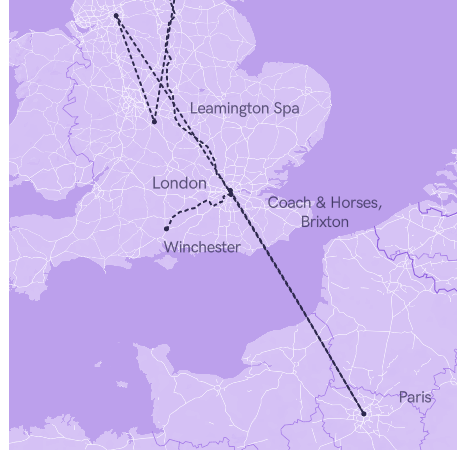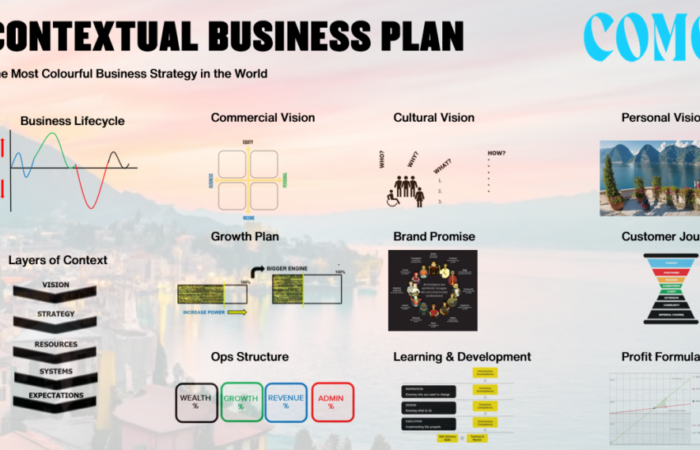The prospect of self-driving, likely electric, vehicles for personal use excites me enormously. (I’m a terrible driver). What excites me even more is the trillion-dollar ripple effect these will create for other businesses.
Who’s Going to Invent the Autonomous Car?
The primary business model for Autonomous Vehicles will combine:
- Hardware
- Platform (Software)
- Legislation, and
- Culture.
These are hard problems, thankfully being tackled by great minds from established global corporations like Google and Nissan to startups hoping to be the Microsoft of autonomous cars (“a self-driving vehicle in every garage“?) The development in this space doesn’t interest me.
I take it for granted now that these problems will be solved – and indeed, if you believe the press releases, it seems the first two have been fundamentally addressed. Legislation is catching up, and I believe the challenge of convincing people that ‘humans driving is unsafe‘ will take a similar 20-30 year trajectory as ‘humans driving while drunk is unsafe‘ did (hopefully faster).
So partly because I spend my working life alongside great private enterprises in the $1.5-$120M space, I wanted to consider the myriad business opportunities created for these companies as a result of generally-available autonomous vehicles. Beyond self-driving trucks in the Pilbara, where can enterprising mid-tier companies find their slice of the trillion dollars in value being created?
Services Transporting People and Goods
Services is the obvious first place. I think Uber’s success has demonstrated that there is a market demand for ‘better taxis‘, and where there is market demand there is a first mover advantage.
Unlike Uber, the capital required to buy a global autonomous taxi fleet will be enormous, so if you want to be more than just a regional player you might need a crowd-sourced capital model. Drinking and Driving don’t currently mix, but I’d like to blend Uber’s platform with Nant Distillery’s funding model. where investors can purchase a car in exchange for a portion of the proceeds. Uber itself has already staked a claim here, and it will be interesting to see whether it creates a corporate fleet or continues with the sharing economy (prediction: hybrid model).
Beyond the cars themselves, this is the largest market opportunity, as individuals do away with being car owners (or multiple-car-households) and embrace the cost-efficiencies driverless cars will provide. There’s no shame in being a regional player or number 3 behind Uber (just don’t think grabbing 1% of the market is a good strategy – if you’re good, you’ll grab more, and if you’re not you’ll grab nothing).
Periphery products and software, such as taxi-meters, entertainment consoles, wifi provision, even GPS-connected tour guides, will all add value in this space as well.
Courier services would be another target. Here the key would be akin to what Ocado has achieved in the UK – how to maximise the number of deliveries – made more complicated by the fact couriers have multiple pick-up as well as drop-off locations. These processes exist – someone just needs to do it without the people driving / riding bikes.
This obviously scales up to any delivery or transport company. Without Trucks, Australia Stops (as do most developed nations) – when self-driving road trains make transporting goods safer and faster, costs will be similarly reduced. I already buy some furniture from 1,700kms away because freight is cheaper than local manufacturers – will this see a further degradation of manufacturing in developed countries, or will it reduce some of the overheads that make them less competitive than China and South-East Asia? Will melting-pot locations like Europe see a greater spread of goods when a fleet of reliable trucks can move Greek cotton and pistachios to Germany and return with industrial and medical equipment destined for the Greek ports?
As a business opportunity, however, there will be limits here for new players. Many of existing transport companies are ready – their drivers are often the least reliable (in the sense that they need to sleep, eat, make toilet) part of their process.
So what are the less predictable externalities of a world with autonomous cars?
Car Parks
What happens to all the car parking spaces in big cities when nobody needs to leave their car there all day?
I know at least one Garage company in Australia that is planning to become the leading charging station for autonomous electric vehicles – an easy transformation of the space they currently have. But why have that on expensive inner-city real estate, when most of the cars can drive 20 minutes to cheap industrial land with a similar product? What do those carparks become?
Importantly, many skyscrapers are currently constructed with multiple levels of basement parking – when that’s not required, will it be put to other uses or will it change construction processes? Would you live, work, or shop in an artificially-lit environment 4 stories below street level?
This has a similar affect on residential construction. My house has 2 double garages. If we had no car, would that be more backyard? More workshop space? Smaller allotments? Another bedroom? And what flow on effect would that have for builders, landscapers, tool retailers? From my car-free years in London I know I won’t miss parking in my own garage, though I will miss having a place to keep my grandfather’s hammer.
No More Gas Stations?
Even without the electric car revolution, autonomous cars will impact gas usage. More efficient driving through automation and fleets of new cars will naturally impact wholesale and retail oil prices, although I do believe most will be powered by renewable energy at recharging stations.
But where gas stations are today a retail business targeting customers and benefiting from corner locations on major roads, recharging stations in our autonomous future will be a wholesale B2B distribution arrangement. The car service providers will use their fleet size to negotiate the best prices from recharging stations, as noted likely located on less-valuable, industrial land.
It’s not just these corner sites that will be redeveloped – think of all the goods sold at higher margins due to the convenience of purchasing them with your petrol. Will we see a return to more mindful consumption when we can’t just pull over and grab an iced-coffee? What impact will this have on Red Bull and Mars?
Groceries
Worthy of a separate heading, building on the mindful consumption note above combined with the benefits of improved transportation. Most of us would be familiar with the experience of taking a $20 shopping list into a supermarket and exiting with $50 worth of goods.
How will the business models – of both the food manufacturers and the supermarkets – be impacted when a hand-written shopping list perfectly matches the online order? Apart from the fact that buying bread and milk will now resemble booking flights with Ryanair (no, I would not like to add ice-cream, detergent, or car-rental insurance to my order), I see obvious opportunities for innovative packaging of goods and smaller storefronts.
By packaging, I’m referring to the subtle innovation in how a company combines products (not what products are wrapped in, as that will actually become less important in this model – tough break, FMCG branding specialists). Why have bread and milk in separate aisles, when you can have the ‘Loaf & Carton Combo’ as a single item on the website? I would see the most benefit in having ‘Meal in a Box’ – why select all the fresh ingredients I need for chicken pesto pasta when that could be a single item I can select on the website.
I want to say that there’s a supermarket or delivery company who will benefit from that packaging enormously, but it also feels like a startup opportunity – crowdsourcing and upvoting menus, possibly even with a revenue share component like Domino’s Pizza Mogul promotion, and offering a small but evolving range delivered to your door. API connection with large supermarket chains could make this even simpler, and also offer the opportunity to sell consumers a home for their own recipe collections where a week’s worth of meals can be ordered simply by selecting which 7 of my recipes I want to cook.
Fewer retail customers means smaller stores are required – yet another impact on real estate value, although I can’t predict whether this would benefit those already-small stores, only those who niche like Whole Foods, or whether the larger players would leverage their delivery channels into lower prices and higher market share.
Worth noting here the flow on impact this would have on other retail businesses. Supermarkets are known in commercial real estate circles as ‘Anchor Tenants’ for a reason – they provide guaranteed foot traffic that smaller businesses benefit from. Not every butcher and baker is going to transition into online, when their customers no longer drive to the shopping centre. And as reduced volume further squeezes some retailers, expect Amazon etc to benefit.
Second Class Citizens
I think many people forget that cars are used for more than just travelling from A to B – most pundits in this space, for example, don’t appear to have kids and aren’t familiar with the pain of fitting car seats into a vehicle and carting around bags and prams and miscellaneous crap. Uber Autonomous won’t solve that problem, so will parents find themselves owning cars while the rest of us pay-per-ride? Is that another cost, like school tuition and flute lessons, that the childfree can lord over the breeders?
What about the transition for other members of society, in particular lower socio-economic demographics for whom driving clunkers into the ground is a necessity? Retrofitting existing cars to become self-driving will be possible, but if I can’t afford new brakepads then I can’t afford that, let alone a new vehicle or frequent taxi rides (even if they are a fraction of the price). As a concept, ‘Cash for Clunkers’ is a great idea for environmental sustainability – will we see a repeat in the future, possible in reply to demands from the car industry (especially used car lots) dying under the impact of middle-class consumers downsizing? Will the government be able to afford it, given the non-existent revenues from speeding fines and parking tickets?
(Prediction: Of course they will, think of the taxes that will be slapped on these alternative transport businesses and passed through to consumers.)
“Bucket List Opportunity: Drive Your Own Car”
Will driving itself become a niche or specialist skill?
Eventually human drivers will be banned from the open road – in the same way drink driving and speeding are banned, for being simply too dangerous. What is currently a niche pastime – having the opportunity to drive gorgeous cars at stupid speeds around a racetrack – will become far more popular. Think of all those car lovers who can’t even fathom why people would drive anything other than a manual stick shift – convincing them that general driving is not permitted is a large part of the Culture problem faced by autonomous car development.
So where’s the business opportunity? Well, who will build the new driving tracks? Attract the customers? Fast forward far enough – who will teach people to drive, when it’s as boutique as teaching people to deep-sea dive? What’s to become of all those solopreneur driving instructors, not to mention the personalised plates industry? Which mechanics will transition to servicing these vehicles, now that they are dominated by computers and no longer suffer the degrading effects of lousy human driving? What will become of the rest?
And which products will step in to replace the ego-building niche left vacant by reduced car ownership? When I can no longer show off my car, will I show off my bespoke suit or bring people home to see my hotted-up solar panels?
Town Planning and Real Estate
In western countries, we have built our towns and cities to be car-centric. Most Town Planners I know already dream of a built environment where this is not the case. So what happens when cars become a lesser part of our personal identity, when we don’t drive one and most people don’t even own one?
Fleets of autonomous cars promise rush hour solutions that are faster and less congested: will that mean fewer roads and/or fewer lanes? And if so, what will we as a society do with that space – simply make the footpaths wider and prettier, or do we create more parks, more leisure activities, more “community” or opportunities for neighbours to connect?
There are plenty of wide suburban streets that could be replaced by another row of houses with adjoining footpaths – essentially ‘creating’ land for housing, which would be a boon for councils but less so for real estate investors. Will the transition away from everybody-needs-a-car mean more people willing to use existing public transport options (bus / train / light-rail), or will public transport users be attracted to pay the slight premium for door-to-door luxury of self-driving taxis?
And in either case, how will local government budgets be impacted – more users may require more services, and fewer users could mean cutting unnecessary services or having to continue providing them at an even-greater loss. Will we see the rise of privately-provided-public-transport? Who wants to build the autonomous alternative to my 15 minute-walk-to-rail, and will you integrate with existing transport hubs or bypass them entirely?
Commuting and Real Estate
Indeed, will we actually want to build in those closer suburbs, now that commuting is much easier? For example, I would love to retire to a spot overlooking water on the Sunshine Coast but would never commute from there because the experience is universally horrible. With self-driving cars and faster peak hour traffic, however, this commute becomes comparable to the fabulous 90 minute train ride I used to enjoy from Clapham Junction to Reading – grab a morning coffee and a first-class ticket, read Anthony Evans and Allister Heath in the morning paper, and put in an hour of uninterrupted work before I got to the office.
What are the externalities from all of the newly created productive time generated by moving millions from ‘driver’ to ‘passenger’? I don’t think ‘sitting in your own car’ is equivalent to ‘sitting on a bus’ (for commuter comparisons). Maybe many people will use it for ‘leisure’ (or at least, Facebook perusing and game apps); will bosses start expecting 3 hours more work from their staff, or that (at the very least) they’ll be available on email while commuting? Will autonomous cars and GPS make it easier to finally crush peak hour, by spreading the load in a transparent (ie, no assumptions about slacking off) way?
Will real estate prices strengthen in periphery areas, once the pain of commuting is alleviated? Perhaps deciding what people will do with their 1 hour commute will be moot when it goes back to 20 minutes (like it is doing that drive at 3am). Perhaps telecommuting will be de rigueur for most industries by then and this point will be completely redundant because we’ll all be living on Lake Como or in Chang Mai.
All questions inviting a gamble by the entrepreneurial among you.
Fatality Free Everydays
What industries will be impacted when road injuries and fatalities plummet? What impact will it have on emergency healthcare, for example, when we moist robots are no longer in control of the multi-ton behemoths at speed? Does it create better outcomes for other patients … or fewer doctors / nurses / medical supplies?
Car accidents are calculated to cost Australia over $1,000 per person per year. Combined with fewer roads and less road maintenance, that’s income transitioning to company and government budgets here and in other similar countries. No doubt this means from fewer jobs for autonomous tow-trucks, and a transfer of money from funerals and physiotherapy to extra birthday and Christmas gifts.
Recreational Thrills
Will the driving ‘thrill’ spill not just into racetracks, as above, but increased demand for other adventure sports – “grandpa used to drive himself 20,000 miles a year, but now we have to go bungee jumping to feel that buzz”. (Remember that people are terrible at seeing history through anything other than the lens of the present – I won’t miss driving, but my grandchildren may well feel nostalgia for it in a way I feel for The Grand Tour, even though my 19th century ancestors weren’t noblemen they were thieves, convicts and hangmen.)
What about other recreational activities where owning a car helps? Everything from fishing (towing your boat) to gardening (removing rubbish / branches etc).
Perhaps there will be some niche businesses created with this kind of market position – ‘autonomous cars for landscaping removal’, ‘your boat, we tow’ etc. Absolutely the concerns will be outweighed by the benefits of always hiring the car fit for purpose – nano when it’s just me and my bocce set, SUV when I have friends in town and we’re going golfing.
What about those people in professions where car ownership is essential – just like parents and car seats, how about tradesmen with tools and trailers? No doubt many will just own their own autonomous vehicle – will that be super cost-efficient (meaning lower overheads, and some price v margin options for tradies) or will they be small-run models at a higher price (meaning higher overheads, and more expensive renovations for the end consumer)?
Travel and Tourism
Moving to one of my interests, travel and tourism. How many cost savings when you don’t need to pay the bus driver and the tour guide? For those businesses where both roles and filled by 1 person, does this mean better specialisation in the tour guide skill? Will my friend Jane at Capercaillie Escapes one day just sell you a USB for your autonomous rental vehicle, rather than walking you through your self-drive tour of Scotland?
And on a less-predictable scale, what impact will autonomous vehicles have on the movement of tourists? I know my beautiful wife and I missed much of the Italian countryside because we were too scared to drive in Italy, and how many English families might venture into France and Belgium instead of Blackpool when the car will manage the international challenges on its own? What about Santorini or Bali where mopeds outnumber the cars – will we get autonomous mopeds, or will they became island bastions of thrill-seeking self-drivers?
And who owns the data when you ask your car to take you to a good Italian restaurant in New Jersey? Another Service Software opportunity – will you trust the car’s choice (based on the license fee they pay Yelp) or will you want it to read you the top 5 options and some reviews (based on the license fee they pay TripAdvisor)? Our driver on the Amalfi Coast was rewarded with free dinner when he took us to his favourite restaurant (it was a good choice, we were delighted) – I suspect a harder commercial model will replace leftovers with commissions.
And then there’s the longer trips. Taking the family to the beach for a holiday? Nobody plays ‘I-Spy’ anymore, because the holiday vehicle you hired has room for 4 in the back to sit around a table and play board games, or watch a movie together. I for one can’t wait for this combination of the best of train travel (top speed, minimal stops, leisure time as a group because someone else is driving) and the best of driving (door-to-door service, secure storage, no need to socialise or sit next to random strangers). I’d like to think this will create more family travel and support the board game revolution, though I do fear Candy Crush and Netflix will win unless other cultural changes take place as well.
Indeed, before I move into my conclusion with a snapshot of the future, I think it’s worth noting this cultural impact. Beyond convincing petrol-heads that human drivers are a bad idea, I’ve noted several other changes here ranging from mindful consumption to family togetherness. This is the core reason why predictions are fraught with danger – it’s fairly obvious that transportation companies are going to benefit from autonomous vehicles, but good luck making assumptions about how we as a society will shift.
Never forget: New York hosted an 1898 international conference into the incredible social problem of horse manure in the streets and nobody predicted how fast we would transition to horseless carriages.
John Citizen’s Autonomous Future
Dateline 2035?: John, Jane and their kids now live in a far nicer house than their parents did, affordable because of the small allotment (no garage required) and the spread of suburbs away from the city tempering demand. John wanted to be a Surgeon, but wisely shifted to Medical Research where he’s now working on cures for a tiny disease that would never have been funded back when governments needed so many emergency rooms for car crash victims.
Jane works from 7-3 each day, sends the kids to school in their own taxi which she monitors by GPS in the corner of her tablet while she reads Anna Karenina. She alternates her afternoon time translating the videos from her online course ‘Garage to Garden’ into French (which she learned to an intermediate level with time she used to spend swearing at other drivers) and contributing to the community garden that used to be a traffic thoroughfare.
The $20,000 per year it used to cost them to buy and maintain two vehicles has transitioned from car dealers and mechanics to Uber and an investment portfolio. With her side income, the family takes a regional holiday each year (the Settlers of Catan battles while they ‘drive’ are famous), and the kids still talk about the incredible gelati they found in San Marino, a country they only visited because of how easy it was to take a car there from Florence.
John’s dad struggled with the transition from mechanic to forced retirement. He doesn’t fully appreciate that his driver’s licence would have been taken away for medical reasons by now anyway, so still curses the autonomy self-driving cars give him when previous generations would have become house-bound of financial, and then physical, necessity.
However, he does love the fact that Formula 1 is a respected sport known for innovation – that hasn’t been the case since he was a boy!
Comments and Conclusion
I’ve asked questions more than I’ve presented business solutions wrapped in a bow. What have I missed? What opportunities can you see, or flaws in the predictions I’ve presented? Which opportunities have already been created?
There will be a lot of ways to make money from the autonomous car industry. The Platform – Hardware and Software – winners will justifiably make tens of billions. But the wider market to service all the unexpected externalities that autonomous vehicles creates will easily be into the trillions. Best of luck carving out your share of that value.
If you leave me, can I come too…? Click here to subscribe to my fortnighly business links newsletter
If you’re Dustin Curtis, you should follow me on Twitter here.
And please tell your friends: Sharing is Caring
Comments Below:





Autonomous consumption. The flip side (or extension?) of your “hand-written shopping list perfectly matches the online order” and “selecting which 7 of my recipes I want to cook” (both of which I love), will be the “standing robotic order.” As you make clear, a huge portion of vehicle miles traveled have the sole purpose of consumption. Already much of our consumption is thoughtless, easily nudged—triggered by careful arrangement as we arrive to buy bread and bananas—this will translate to online shopping (it already has—people who bought this also bought…). Almost everything imaginable could be put on automatic refill or monthly standing order (40 years ago I belonged to a record club that automatically sent me an LP recoding per month —most were by default because I was not paying attention to the mailed selection reminders; many I would not have selected, did not listen to, but paid for anyway). Fully robotized consumption will be a clear danger. Bern Grush—endofdriving.org.
[…] tell me twice – here I am pontificating on Donald Trump’s December 2015 demise; here on the impact of autonomous vehicles on real estate markets.) Daniel recommends the book Thinking Fast and Slow – that’s a few people who have […]